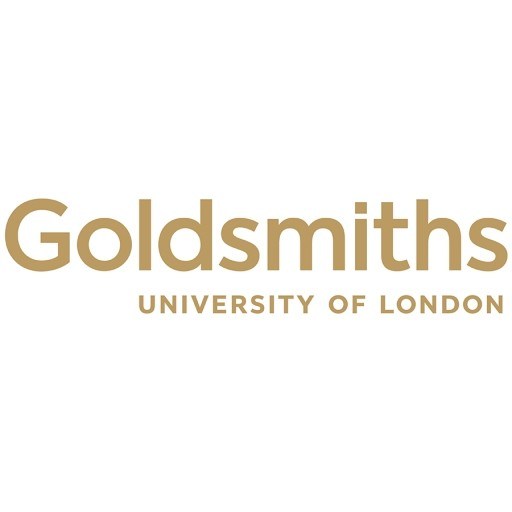Photos of university / #ucl
The MA in Modern European Studies at University College London offers students an in-depth exploration of the political, economic, social, and cultural developments that have shaped Europe from the late 19th century to the present day. This interdisciplinary programme combines historical analysis with contemporary European issues, providing a comprehensive understanding of the continent's complex transformations. Students will examine key themes such as European integration, nationalism, democracy, human rights, migration, and economic unification, among others. The curriculum emphasizes critical thinking, analytical skills, and research methodologies, preparing graduates for careers in academia, policy-making, journalism, international organizations, and beyond. The programme features lectures, seminars, and workshops led by renowned faculty members and experts in European Studies. Students also have the opportunity to engage with primary sources, participate in debates, and undertake independent research projects. With a focus on both historical context and current affairs, the MA promotes a nuanced understanding of Europe’s diverse countries and cultures. The programme benefits from UCL’s vibrant academic environment and extensive resources, including access to specialized libraries, archives, and research centres dedicated to European Studies. Throughout the course, students can participate in various events, conferences, and networking opportunities that connect them with professionals and academics in the field. Graduates of the programme acquire critical skills to analyze European issues critically and develop informed perspectives that are valuable across a range of international and domestic sectors. Whether aiming for a career in diplomacy, international relations, academia, or the media, students will find that this programme offers a rigorous and engaging educational experience rooted in global and regional perspectives.
The Modern European Studies pathway focuses on the emergence of modern Europe, the political implications of integration, and its transition from competing nation states and forms of governance to an expanding political and economic union. Students take complementary optional modules, which may be national, regional, or European in scope.
Students undertake modules to the value of 180 credits. Two pathways are offered: Taught and Research.
The Taught pathway consists of two core modules (60 credits), four optional inter-faculty modules (60 credits), and a dissertation (60 credits). The Research pathway consists of two core modules (60 credits), two optional inter-faculty modules (30 credits), and a dissertation (90 credits).
A Postgraduate Diploma, two core modules (60 credits), four inter-faculty optional modules (60 credits), full-time nine months or part-time two years) is offered.
Core modules
- Questions of European Integration
- The Making of Modern Europe
Optional modules
Students on the Taught pathway take four, and students on the Research pathway take two of the following inter-faculty optional modules
- Relevant Modules - UCL Arts & Humanities Faculty
- Relevant Courses - UCL Social & Historical Sciences Faculty
- Relevant Modules - UCL School of Slavonic & East European Studies (SSEES)
Dissertation/report
All MA students undertake an independent research project which culminates in a dissertation of approximately 12,000 words, or 18,000 words for the Research pathway.
Teaching and learning
Key aspects of European theory and culture are taught through participation in lectures and seminars. Through feedback sessions on presentations and essays, students are encouraged to reflect on, and improve, their own work. Assessment is through a combination of coursework essays, unseen written examinations, and the dissertation.
A minimum of an upper second-class Bachelor's degree in a relevant discipline from a UK university or an overseas qualification of an equivalent standard.
Wellcome Trust Scholarship
Eligibility:
UK, EU, Overseas students
Criteria:
Based on academic merit
The MA in Modern European Studies at University College London is a comprehensive postgraduate program designed to provide students with an in-depth understanding of contemporary Europe’s political, economic, social, and cultural dynamics. The program aims to equip students with critical analytical skills and a multidisciplinary perspective essential for engaging with the complex issues facing European countries today. It offers a rigorous curriculum that combines theoretical frameworks with real-world case studies, allowing students to examine major European developments from historical, political, economic, and cultural perspectives.
Students enrolled in this program have the opportunity to study a wide array of topics including European integration, transnationalism, identity politics, migration, security, and the role of European institutions. The coursework emphasizes critical thinking, research skills, and the ability to interpret and analyze complex data and texts. Additionally, the program encourages active engagement with current European issues through seminars, guest lectures, and research projects.
The program also provides opportunities for students to develop language skills pertinent to European contexts, supporting a truly international learning environment. Collaboration with European institutions and participation in seminars with renowned academics and policymakers enrich the academic experience and prepare graduates for careers in international organizations, diplomatic service, policy analysis, journalism, or further academic research.
UCL’s vibrant academic community and extensive resources, including libraries, research centers, and links with European institutions, support students throughout their studies. The program typically lasts one year full-time or two years part-time, and students often have the chance to undertake a dissertation that allows for specialized research into a particular area of European studies.
Overall, the MA in Modern European Studies at UCL is ideal for students interested in understanding the rapidly evolving landscape of Europe, offering a unique blend of scholarly rigor and practical relevance. Graduates of the program are well-equipped to pursue professional opportunities across multiple sectors, including government, NGOs, academia, and international agencies, contributing to a greater understanding of modern Europe’s challenges and opportunities.




